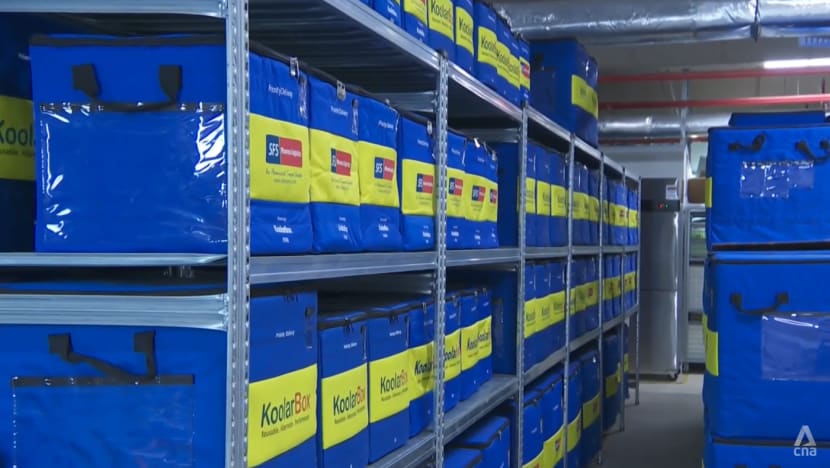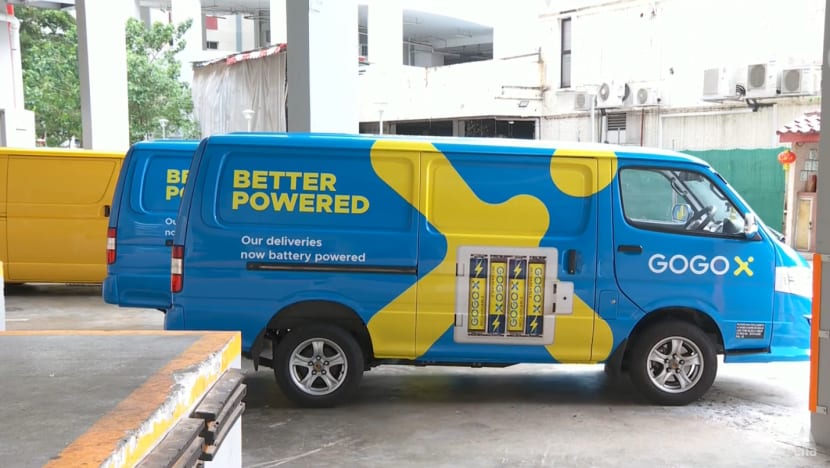Electric vehicles, swapping out single-use boxes: How some firms are getting on the green bandwagon
Electric vehicles, swapping out single-use boxes: How some firms are getting on the green bandwagon.

Cold chain logistics firm SFS Pharma Logistics has switched out single-use styrofoam boxes for insulated ones that can last for up to five years.

This audio is generated by an AI tool.
SINGAPORE: Some small- and medium-size enterprises (SMEs) in Singapore have ramped up their efforts to go green, but continue to face challenges like calculating and reporting emissions accurately.
Cold chain logistics firm SFS Pharma Logistics, for instance, has switched out single-use styrofoam boxes for insulated ones that can last for up to five years.
Previously, the firm used traditional thermal packaging which involved cooling gel packs - a laborious affair that also came with high costs and energy consumption.
The company, which handles the transportation of pharmaceutical items that need to be kept cool, has also swapped its traditional diesel vehicles for electric ones, and shifted from using electricity to solar panels in its warehouses.
Part of the reason behind the firm’s green push is that it needs to comply with requirements from its clients, who are mostly from the United States and Europe, and request for a sustainability policy.
CHALLENGES IN REPORTING EMISSIONS
Despite its efforts, the firm has challenges assessing how green it is. Reporting is the biggest challenge in the firm’s efforts, said its founder Roger Chew.
Given that the boxes travel worldwide, it is hard for the company to estimate carbon emissions with gaps in information, he said. It needs to find out what kind of vehicle was used elsewhere, the distance travelled, and which country’s emissions reporting guidelines to follow, he added.
“We do measure every milestone of carbon emission. The challenge we face is which guidelines to use for Singapore and also globally,” he said.
A new sustainability playbook and microsite for logistics players - particularly SMEs - will help firms like his, he said. It was launched last week by the Singapore Logistics Association and Enterprise Singapore for companies in the industry looking to adopt green practices.
It would guide them on how they should do their emissions reporting in the future, Mr Chew said.
“That's something we want to do for the next step, to bring all the carbon emissions that we have measured throughout the value chain and put it into a reporting format,” he said.
PLAYBOOK WILL COME HANDY
Logistics firm GoGoX, which delivers products like furniture and mobile phones to homes, may also benefit from such guidance.
The company recently started on its green journey by switching to electric vans, which country manager Patrick Wong called the lowest hanging fruit in the push towards sustainability.

“The playbook has come in handy … It's very specific to the Singapore logistics industry. So it is good that the playbook does consist of things like benchmarks and some data points that we can actually take reference from,” he said.
Another way the firm - which operates in six countries - uses energy more efficiently is by coming up with better delivery routes.
To prove that emissions have fallen, the firm has to consolidate data from previous years, which may take about six months.
“We are pulling out all our old reports and data to see where we are at today, and then figuring out where are the metrics and milestones and benchmarks that we can reach and maybe set those realistic targets in the coming months and years."
Firms in the logistics sector have to be accountable for their emissions, said Mr Wong.
“We all (in the industry) need to accept the fact that transport logistics - we are the one creating a lot of the carbon emissions on the ground, but that's also a function of what consumers buy, or what organisations sell,” he said.
“We are a major contribution in terms of carbon emissions. So I think we need to do our part … to see how and where we can improve.”


















